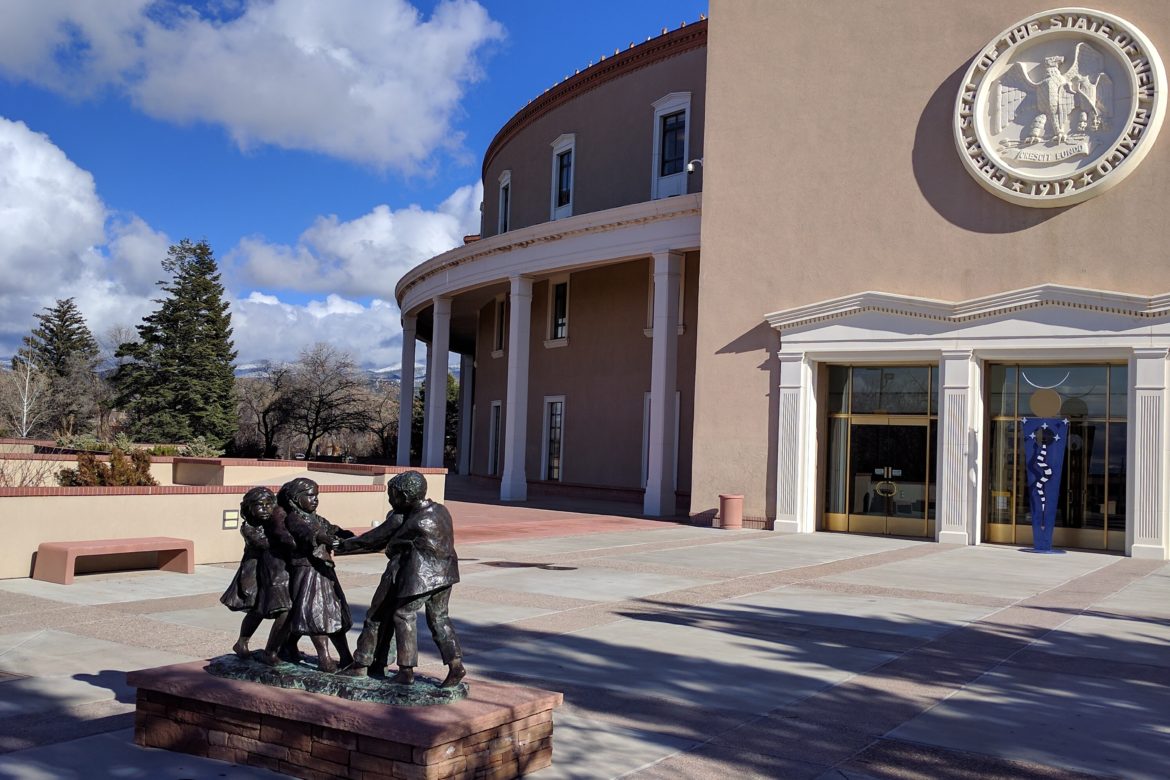Santa Fe – This year’s legislative session kicks off Tuesday at noon and is scheduled to end after thirty days on Thursday, February 15th. The bills that make it out of both houses have until March 7th to be signed by the governor or are automatically vetoed by the so-called pocket veto.
Due to the recent boom in oil and gas prices (oil prices are at a three-year high as of today) the state coffers have roughly $200 million in “new money”, meaning additional revenue above the current budget’s spending obligations. After facing budget shortfalls for the last two years the state’s improved financial outlook has noticeably boosted the atmosphere in Santa Fe compared to the last couple of years.
But the party may not last long. While there is no shortage of opinions on which way oil will go next, it does not seem prudent to continually build a state budget that is so heavily exposed to the booms and busts of the oil business. Ironically, it was under Democratic Governor Bill Richardson that the state cut income tax rates while maintaining spending levels. The state has been at the mercy of oil boom and bust cycles ever since.
Nevertheless, expect the Governor and the Legislature to boost spending in anticipated areas of agreement such as Medicaid, public schools, early childhood programs, and law enforcement.
But do not expect any major legislative action (such as much needed tax reform) in Governor Martinez’s last legislative session and in an election year when all State Representatives are up for reelection. It will be a legislative session of political posturing – and for Democrats, a political “punt” with the expectation that come next year they will have a Governor more friendly to their interests by the name of Michelle Lujan Grisham.
The lack of urgency on economic reforms is regrettable in a state that has the second highest unemployment rate in the nation and “in the midst of its slowest population growth since statehood”. The status quo continues to maintain its control of the Roundhouse.
Over 240 pieces of legislation have been filed as of Friday but most of them will never reach the governor’s desk. In the last thirty day session 620 bills were submitted, 101 were passed, and the Governor signed 92 of them (and vetoed nine).
Some of the bills and other Roundhouse activity worth noting:
- The national conversation on sexual harassment has had an impact in New Mexico. The Legislative Council will consider a new anti-sexual harassment policy, and since Senator Michael Padilla was removed of his Democratic leadership position last month due to sexual harassment allegations Senate Democrats are expected to elect a new whip today, with at least 3 senators vying for the position.
- Governor Martinez will continue pushing her tough-on-crime agenda, including bringing back the death penalty, expanding the three-strikes law to produce more lifetime sentences, and civil immunity for law enforcement officers accused of police brutality. Democratic lawmakers prefer efforts to boost community policing.
- One piece of legislation that is expected to be acted on with urgency is a bill that allows nurses licensed outside of the state to work in New Mexico.
- Several constitutional amendments are being proposed such as boosting spending on early childhood education and the legalization of recreational marijuana. In an election year both could be valuable GOTV tools for Democrats looking to maximize turnout in a midterm election year.
- PNM is seeking legislative approval to address how the state’s largest electric utility recovers hundreds of millions of dollars in costs that will result from closing the San Juan Generating Station earlier than planned. Opponents say this move is an end run around the PRC who recently questioned past investments by the company.
In summary, in a political environment that combines a governor nearing the end of her term with a bolstered Democratic Party anticipating a midterm election boost, the result will be a legislative session full of political posturing that is not expected to produce any legislation of meaningful economic impact.

